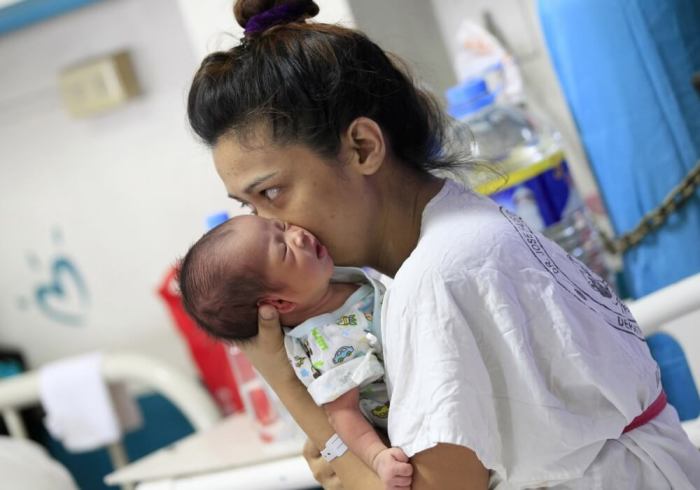Zika Virus: Can We Talk About Contraceptives Now?

As of February 1, the World Health Organization has declared the Zika virus, largely across Central and South America and the Carribbean, a "public health event of international concern." They believe over 4 million people may become infected in 2016. The virus has been associated with over 4,000 cases of microcephaly, and doctors are currently studying the link between the severe birth defect and the infectious disease in Brazil and other countries.

Once discovered, the Pan American Health Organization and the Centers for Disease Control and Prevention have issued announcements across the Americas calling for postponing travel to these areas, avoiding mosquito bites, safe sex practices, and in some countries, for women to consider delaying pregnancy for the next two years.
For this last call to action, addressing family planning for women, there are myriad obstacles. Over half the pregnancies in El Salvador, for example, are unintended; there are high rates of sexual violence; and there is limited access to contraceptives due to both "gatekeepers" who may not allow for access to contraceptives to women as well as legitimate "stock outs" where modern methods of contraceptives are simply unavailable.
This is a crisis.
Why did it take the Zika virus to alert the world to the need for women to have access to contraceptives and the obstacles therein?
Over 220 million women around the world say that they want to either delay their next pregnancy or avoid becoming pregnant, but they have neither the information nor the resources to do so. While the U.S. leads the world in provision of access to contraceptives, we still are woefully short of meeting this need.
Each year over 300,000 women die from complications during birth and pregnancy; and 5.9 million children die before their fifth birthday each year. One way to improve maternal health and reduce child mortality is simply access to family planning, or healthy timing and spacing of pregnancies (HTSP).
Many women in developing countries are married by the time they are sixteen. If they become pregnant in their late teens, these young women are three times more likely to die than if they could wait until after twenty years of age to have their first child. Timing is critical in the debut of the first pregnancy to save the life of the mother. And when a mother dies during childbirth, the newborn is ten times more likely to die within two years of his or her mother's death. And if she can just space her pregnancies three years apart, the child is twice as likely to survive the newborn stage.
If a young woman can have access to healthy timing and spacing of pregnancies, she can finish her secondary education, prepare for a job, and set up a strong foundation for a thriving family later in life. She can choose to have fewer children that she and her husband can afford to house, feed, and send to school. Planning a family is critical to undermining a cycle of poverty to create a new, virtuous cycle of sustainability.
Without access to contraceptives, maternal mortality, infant mortality, and child survival issues are realities millions of families must face. Alongside these issues, those living in extreme poverty without access to adequate nutrition, including vitamin deficiencies, during pregnancy and post-pregnancy, can lead to stunting and lagging brain development among children. To put this into perspective, this slowed growth currently affects over 165 million children worldwide.
Finally, access to contraceptives in developing nations is a means to combatting the orphanhood crisis, human and sex trafficking, and prevention of mother to child transmission of HIV/AIDS.
The Zika virus is just one more reason women, not just across the Americas but worldwide, should have access to contraceptives and the knowledge to better time and space pregnancies for her life, the life of her children, and the flourishing of her family. Even Pope Francis has noted that contraceptives could be used to slow the spread of the disease.
Our U.S. government spends less than a fraction of 1% of our budget on international, voluntary family planning for these women, not including abortion as prohibited by the Helms Amendment. We should urge our members of Congress to protect and increase this funding for voluntary access to contraceptives and counseling to save the lives of millions of women and children around the world.





























